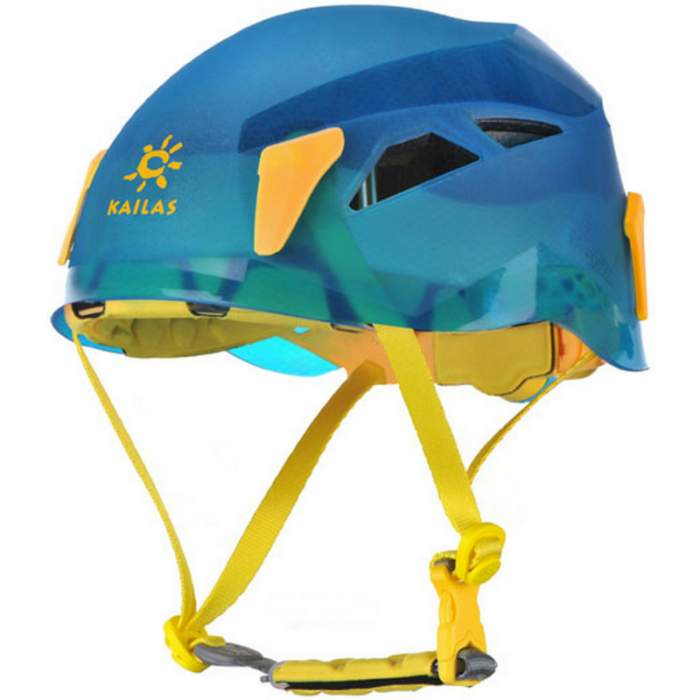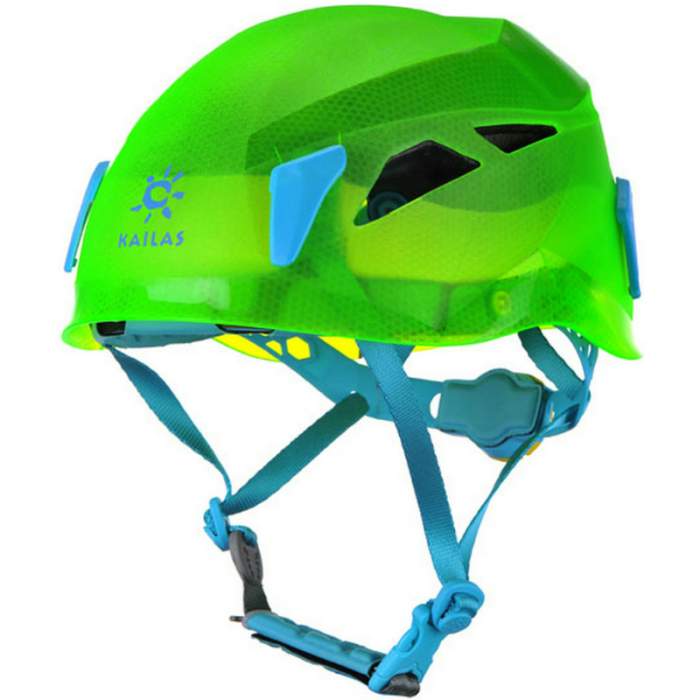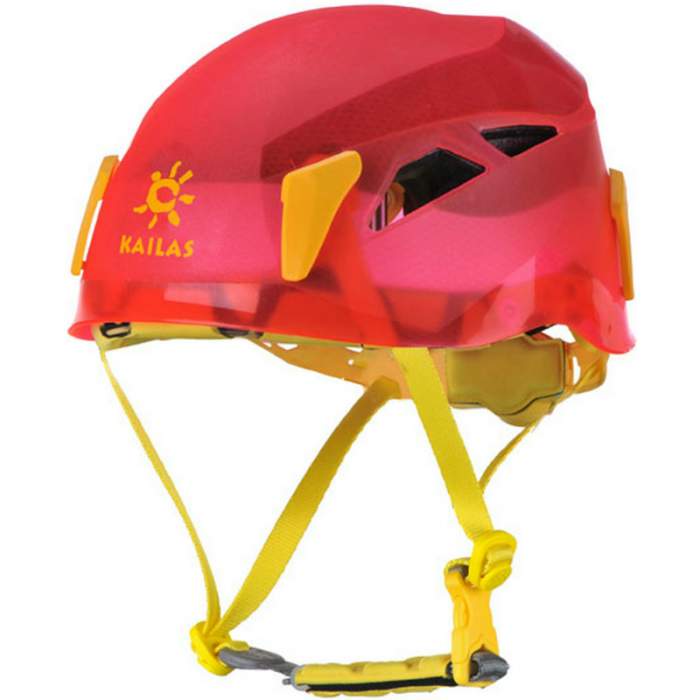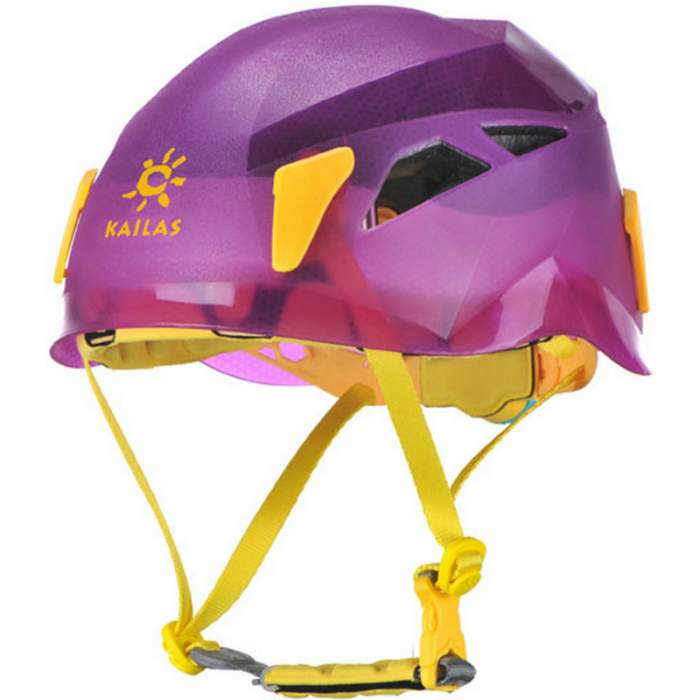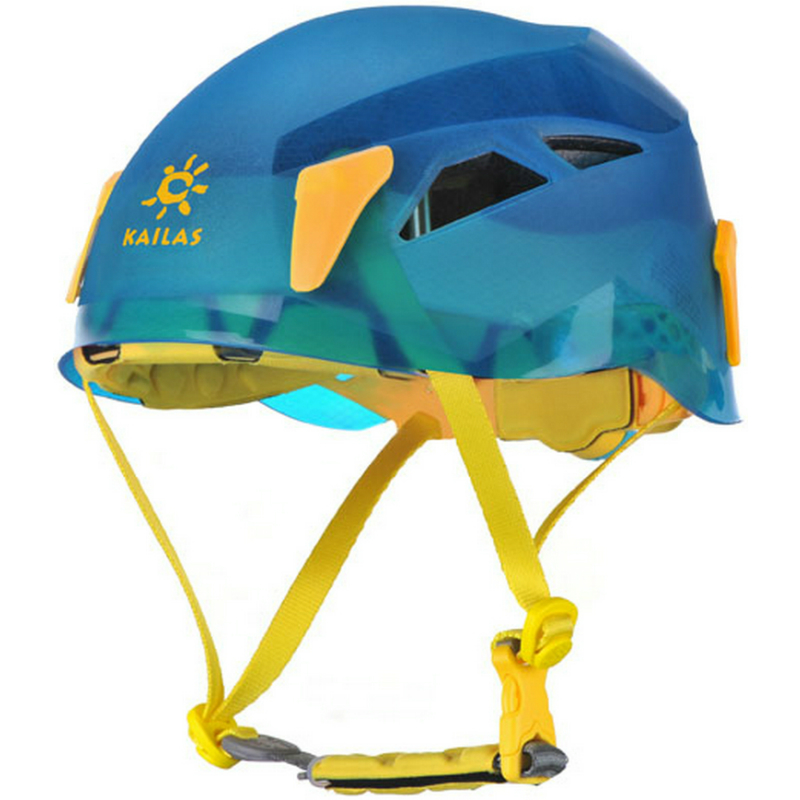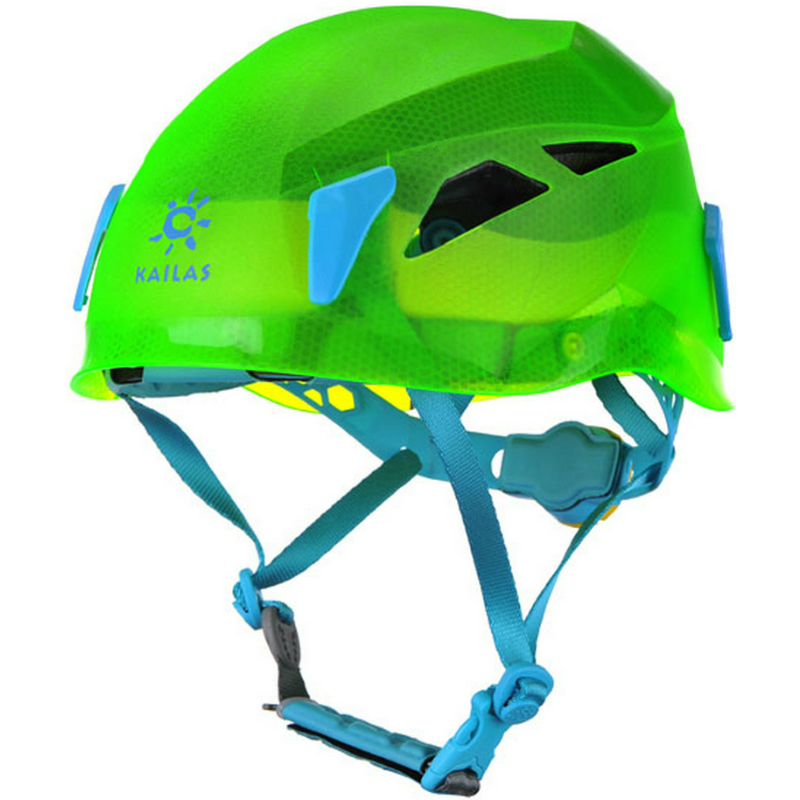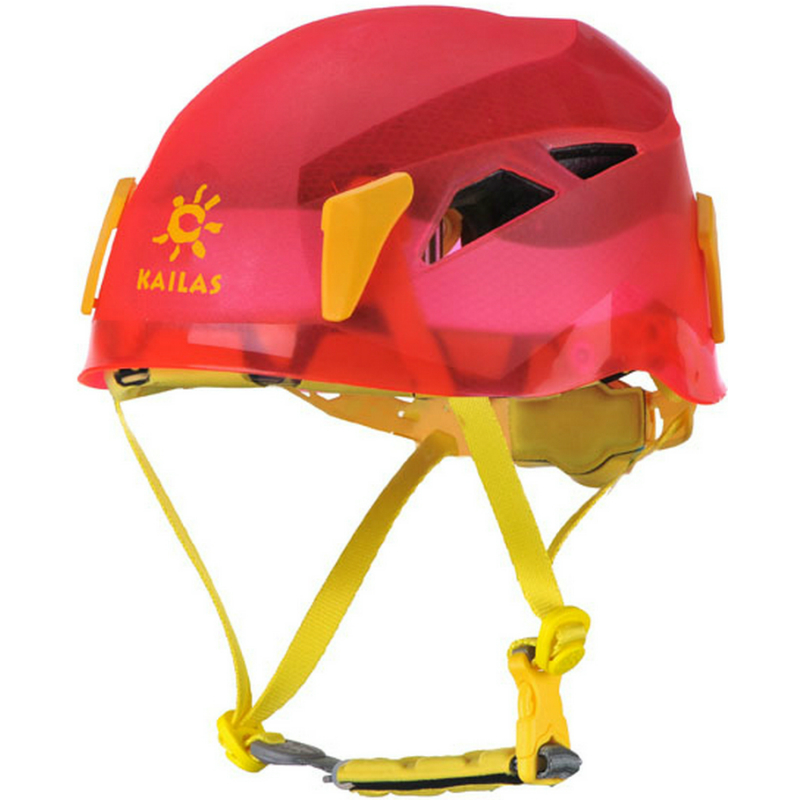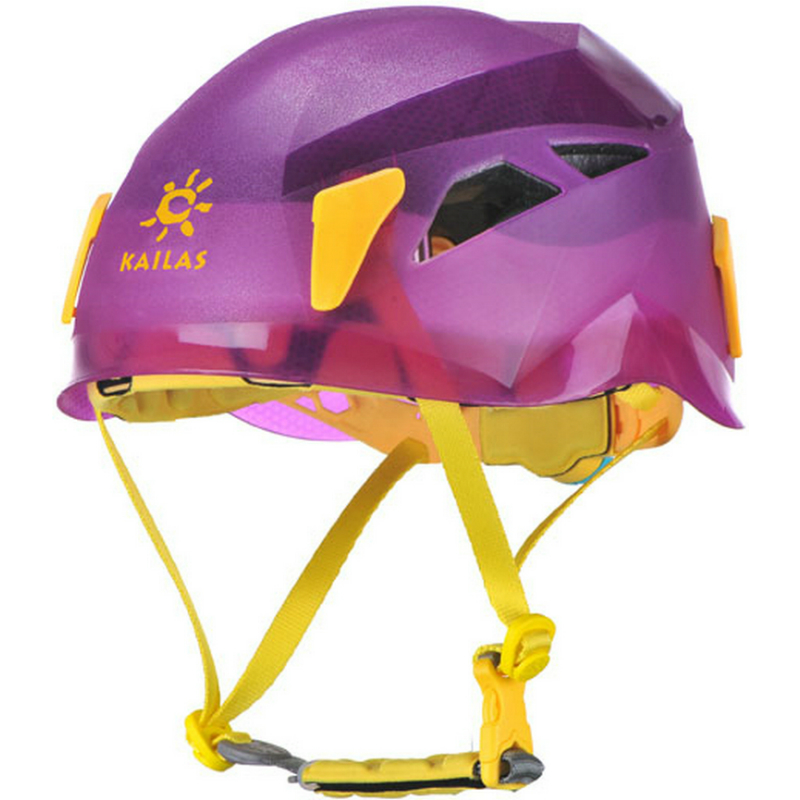AEGIS PLUS
Description
Being the strongest helmet in the world, "Aegis plus"is the first climbing helmet to adopt TPU, EPP and PORON®XRD™ material. It's sturdy, durable quality and wide usage make it your best choice for mountaineering, climbing, high activities and all kinds of adventure sports.
• TPU Shell
Thermoplastic polyurethanes
TPU boasts excellent shock resistance, good cushioning performance, high mechanical strength and bending strength, perfect wear-resistance and good elasticity. What’s more, its features, such as durable quality, ageing resistance, ozone resistance and UV resistance, make it the favored choice in the aerospace industry. TPU material also possesses prominent cold resistance, which allows it to maintain good elasticity, flexibility and other physical properties when the temperature drops to 35℃ below the freezing point.
• EPP Liner
Expanded polypropylene
The liner is made of EPP foaming material, which acts as a better compression buffer than normal EPS material. This makes the helmet stronger, lighter and more durable.
• PORON®XRD™ Backing
PORON®XRD™ extreme impact protection material is the best material for extreme impact protection and for absorbing repeated impact. 90% of the energy by the impact of high frequency can be absorbed.PORON®XRD™ can well adapt to the body shape and thus can disperse the energy caused by impacts.
Its impact absorption capacity can remain excellent over time.
• The ergonomic design can adapt to every head shape. The big adjusting knob allows convenient one hand operation even with climbing gloves on.
• The helmet has six large vents to reduce moisture and heat, ensuring more comfortable and clear-headed mountaineering experience.
• The slightly upward arched frontlines enlarges climber’s vision.
• Head lamp or snow goggles can be mounted to the slot on the helmet.
Retail price
This Product is Hard to Find.
We don’t know where you can buy this item online in the US. We’ll continue to check all the major retailers and will update this page as soon as we find one.
If you know where to find this online in the US, let us know, and we’ll add the link.
Weight (g)  Weight (g)In grams, the weight, as stated by the manufacturer/brand. If there are differences in weight (due to multiple size or optional accessories) we note those here. | 330 g M-XL: 330 g / 11.6 oz |
Gender  GenderThis is the gender as stated by the manufacturer/brand. We use the term "Men" and "Unisex" interchangeably, as there is no difference between these types of helmets. |
Unisex |
Size Range  Size RangeThe sizing options of the helmet according to the manufacturer. | 19.00 in - 24.00 in XS-M: 48-57 cm / 19-22 in |
Features  FeaturesBike Cert (EN 1078)The EN certification for helmets used for bicycling and skating. The major difference in testing 1078 involves needs for more head coverage and for the helmet to pass a deflection or 'roll-off' test of the impact force. BrimHaving a brim on a helmet may be inconsequential to some climbers but they make a great additional bit of protection against sun, rain and falling debris like small rocks or verglass. Multiple SizesThis is helpful for those with particularly small or large heads because helmets that come in 2 or 3 sizes cover a broader range of head size. Usually these are denoted as size 1 or 2, though some brands have S/M and M/L. Face Shield CompatibleFace shields are a part of PPE that could be handy when drilling, developing and cleaning particularly dirty remote routes. Usually only used by work at height professionals. MIPS technologyMIPS or Multidirectional Impact Protection System is a technology designed to reduce the amount of impact force that makes it to the brain. This is accomplished by adding a low friction cap between the liner and the helmet, allowing the shell to deflect around the head rather than transfer the forces from impact directly to the wearer. Many bicycle helmets include this feature and it is starting to be applied to sports like skiing, motorcycling and climbing. Many MIPS helmets are also EN1078 compliant. Ponytail CutoutSo far these are only found in "women's" helmets. It's a cutout / notch area that accommodates a low hanging ponytail hairstyle. RECCO® reflectorThese are used in locating someone missing or buried in an avalanche and are becoming more common in climbing gear due to the increased popularity of ski mountaineering. Though they are more often sold as something to add onto the helmet than being built into one, some manufacturers have begun to build them in. Ski Cert (EN 1077)The EN certification for helmets used for climbing and skiing. This test is simpler than the EN/UIAA one performed for helmets in general, but increases the amount of force that a helmet must endure. Likely this to simulate the faster speeds involved with downhill skiing impacts versus rockfall or climber accidents. This cert becoming more common in helmets as SkiMo popularity increases and more climbers are adding backcountry skiing to their mountaineering repertoire. |
Multiple Sizes |
Quick Adjust  Quick AdjustQuick Adjust refers to the straps of the helmet. Do you want the ability to ability to "quickly" adjust the fit. This could be a dial, or other plastic pieces. Really, most climbers don't need to change the fit of the helmet often, unless you're climbing with and without hats, or you have big hair that flattens and then requires tightening after climbing for awhile. |
Yes |
Vents  VentsRefers to openings in the helmet body to allow air flow. Commonly found in most helmets these days, but often more so in foam and hybrid foam helmets than traditional hardshell polycarbonate shells. Learn More
Click here to read more on helmet construction |
Yes |
Headlamp Compatable  Headlamp CompatibleMany helmets include hooks or clips for holding a standard headlamp in place, which is quite useful for the caver or alpinist. Ask any climber who has been benighted and they’ll tell you just how useful this feature can be. |
Yes |
Face Shield Compatable  Face Shield CompatibleFace shields are a part of PPE that could be handy when drilling, developing and cleaning particularly dirty remote routes. This feature isn't very common in climbing helmets and usually only used by work at height professionals. |
No |
| Certification | |
No reviews yet.
If you know of a good product video that should be here, let us know, and we'll put it up.
If you're looking for gear videos in general, check out our Vimeo and YouTube channels to see the newest gear.

